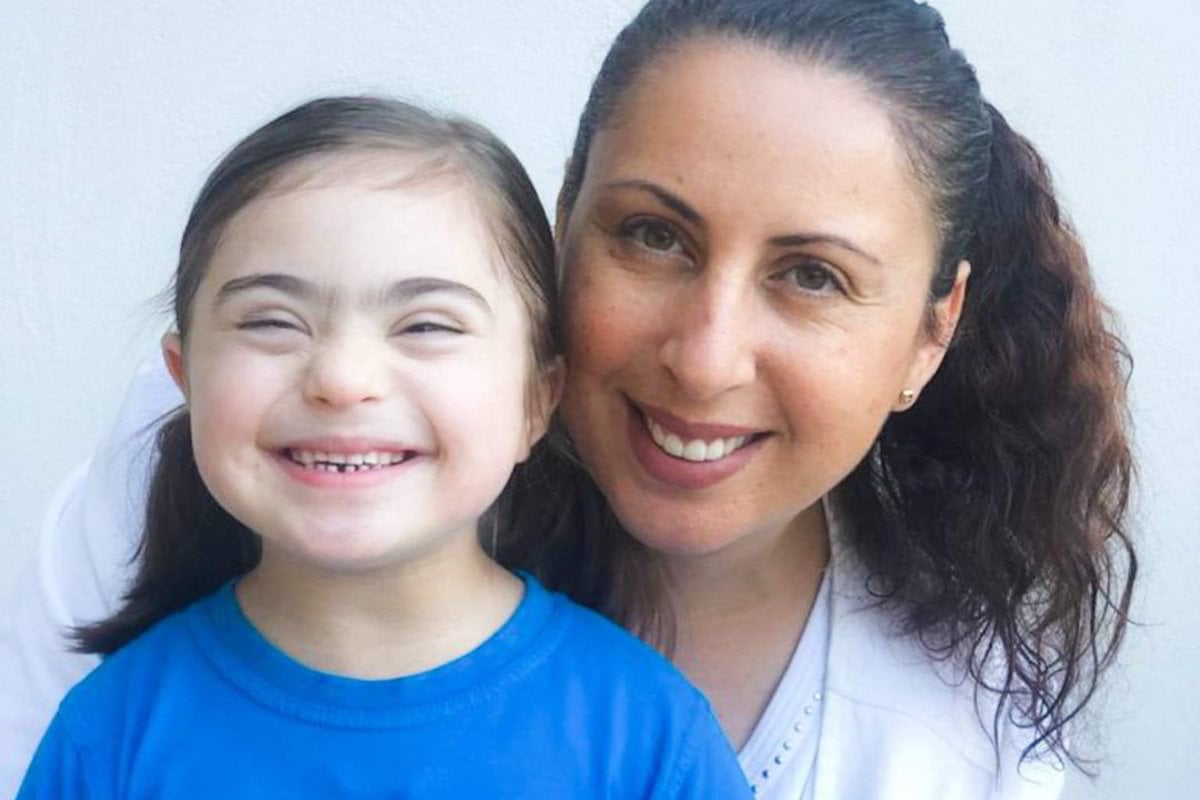
As told to Melanie Dimmitt.
I was 38 and peri-menopausal when I fell pregnant with my fourth child. My period had disappeared and as the months rolled by, I started putting on weight. I thought, what’s going on? Is this part of the menopause thing?
A friend suggested I take a pregnancy test, to which I said, don’t be ridiculous. But I humoured her and sure enough, it was positive. I was 10 weeks pregnant.
Two weeks later I was sat in the reception area of a radiology clinic, waiting for the results of a nuchal scan, when a radiologist called me into a consulting room.
Watch: Questions about childbirth answered. Post continues below.
“Look,” he said. “The ultrasound was fine but your blood test result is showing you’ve got a one in 13 chance of having a child with Down syndrome.”
I just stared at him. I went blank as I tried to crunch these numbers. Without missing a beat, the radiologist asked me, “Do you want to abort?”
I kept staring at him, internally baffled. I’m still trying to get my head around what you’ve just said, and you’ve gone straight to termination? I told him I wanted more testing done. I asked, what are my other options?

Top Comments